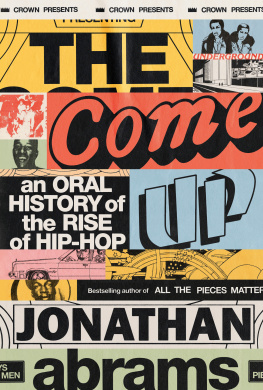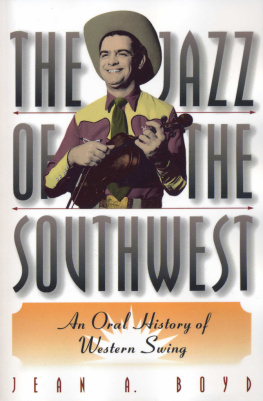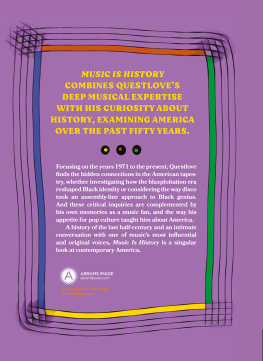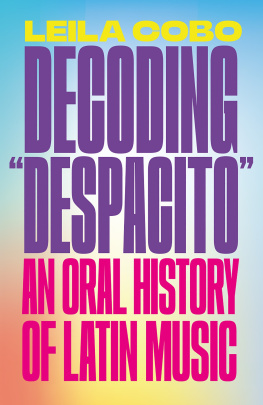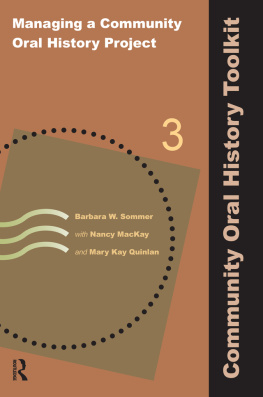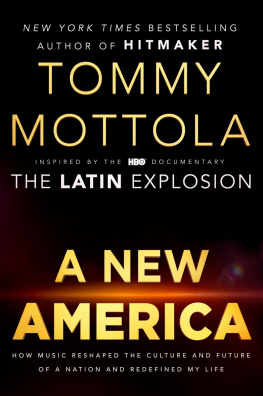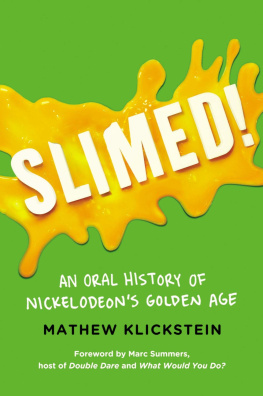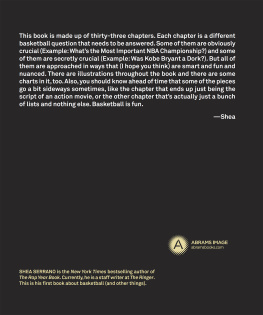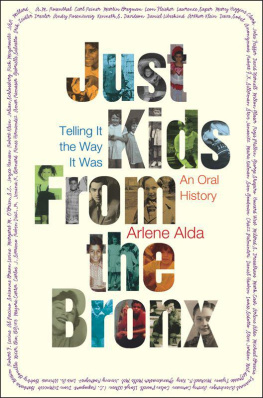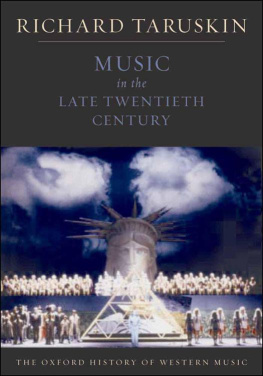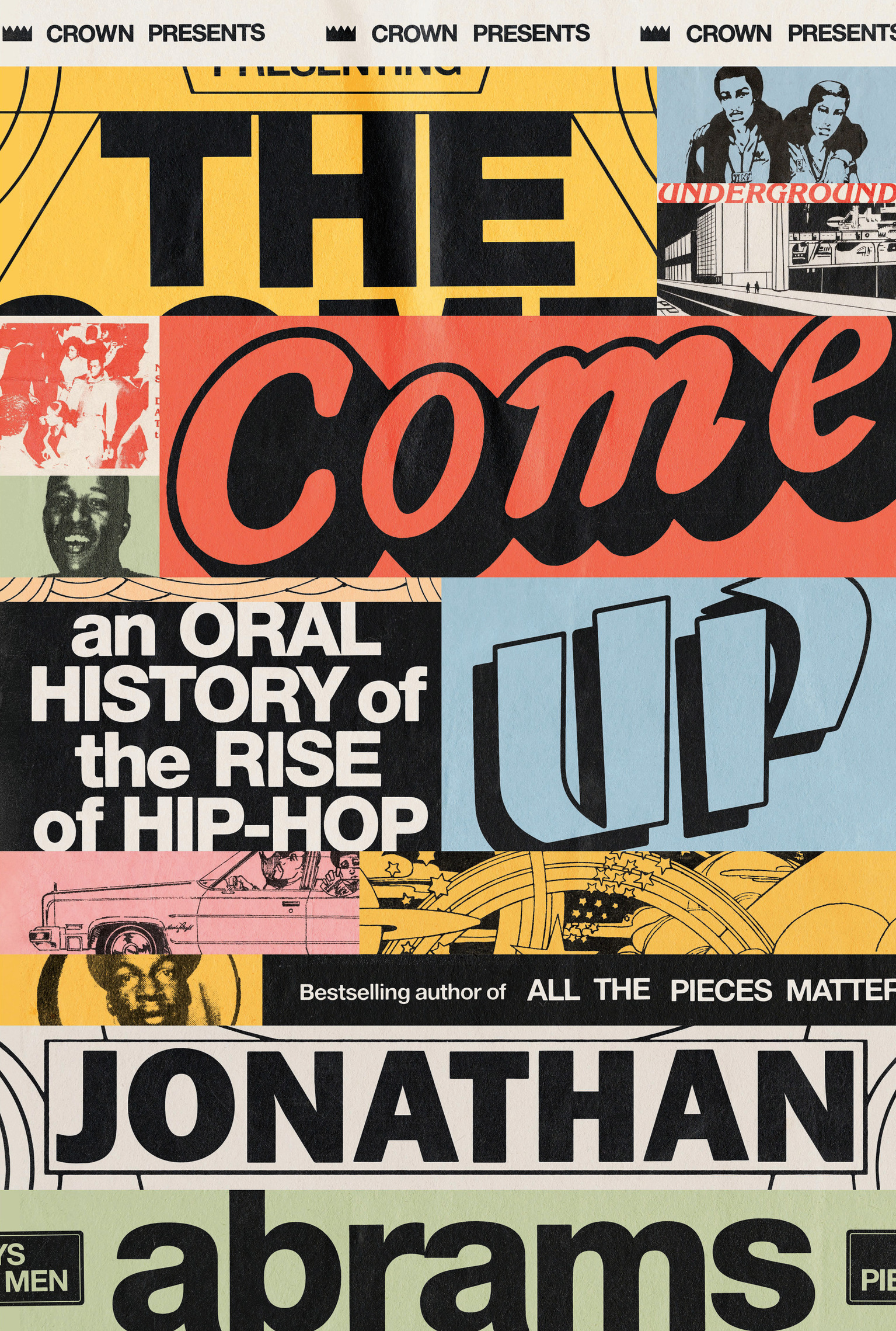Jonathan Abrams - The Come Up: An Oral History of the Rise of Hip-Hop
Here you can read online Jonathan Abrams - The Come Up: An Oral History of the Rise of Hip-Hop full text of the book (entire story) in english for free. Download pdf and epub, get meaning, cover and reviews about this ebook. year: 2022, publisher: Crown, genre: Art. Description of the work, (preface) as well as reviews are available. Best literature library LitArk.com created for fans of good reading and offers a wide selection of genres:
Romance novel
Science fiction
Adventure
Detective
Science
History
Home and family
Prose
Art
Politics
Computer
Non-fiction
Religion
Business
Children
Humor
Choose a favorite category and find really read worthwhile books. Enjoy immersion in the world of imagination, feel the emotions of the characters or learn something new for yourself, make an fascinating discovery.
- Book:The Come Up: An Oral History of the Rise of Hip-Hop
- Author:
- Publisher:Crown
- Genre:
- Year:2022
- Rating:4 / 5
- Favourites:Add to favourites
- Your mark:
The Come Up: An Oral History of the Rise of Hip-Hop: summary, description and annotation
We offer to read an annotation, description, summary or preface (depends on what the author of the book "The Come Up: An Oral History of the Rise of Hip-Hop" wrote himself). If you haven't found the necessary information about the book — write in the comments, we will try to find it.
The Come Up is Abrams at his sharpest, at his most observant, at his most insightful.Shea Serrano, #1 New York Times bestselling author of Hip-Hop (And Other Things)
ONE OF THE BEST BOOKS OF THE YEAR: The Boston Globe, The Guardian
The music that would come to be known as hip-hop was born at a party in the Bronx in the summer of 1973. Now, fifty years later, its the most popular music genre in America. Just as jazz did in the first half of the twentieth century, hip-hop and its groundbreaking DJs and artistsnearly all of them people of color from some of Americas most overlooked communitiespushed the boundaries of music to new frontiers, while transfixing the countrys youth and reshaping fashion, art, and even language.
And yet, the stories of many hip-hop pioneers and their individual contributions in the pre-Internet days of mixtapes and word of mouth are rarely heardand some are at risk of being lost forever. Now, in The Come Up, the New York Times bestselling author Jonathan Abrams offers the most comprehensive account so far of hip-hops rise, a multi-decade chronicle told in the voices of the people who made it happen.
In more than three hundred interviews conducted over three years, Abrams has captured the stories of the DJs, executives, producers, and artists who both witnessed and themselves forged the history of hip-hop. Masterfully combining these voices into a seamless symphonic narrative, Abrams traces how the genre grew out of the resourcefulness of a neglected population in the South Bronx, and from there how it flowed into New York Citys other boroughs, and beyondfrom electrifying live gatherings, then on to radio and vinyl, below to the Mason-Dixon Line, west to Los Angeles through gangster rap and G-funk, and then across generations.
Abrams has on record Grandmaster Caz detailing hip-hops infancy, Edward Duke Bootee Fletcher describing the origins of The Message, DMC narrating his role in introducing hip-hop to the mainstream, Ice Cube recounting N.W.As breakthrough and breakup, Kool Moe Dee recalling his Grammys boycott, and countless more key players. Throughout, Abrams conveys with singular vividness the drive, the stakes, and the relentless creativity that ignited one of the greatest revolutions in modern music.
The Come Up is an exhilarating behind-the-scenes account of how hip-hop came to rule the worldand an essential contribution to music history.
Jonathan Abrams: author's other books
Who wrote The Come Up: An Oral History of the Rise of Hip-Hop? Find out the surname, the name of the author of the book and a list of all author's works by series.

